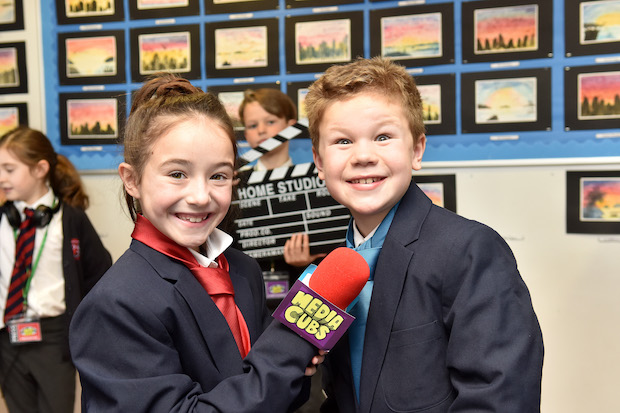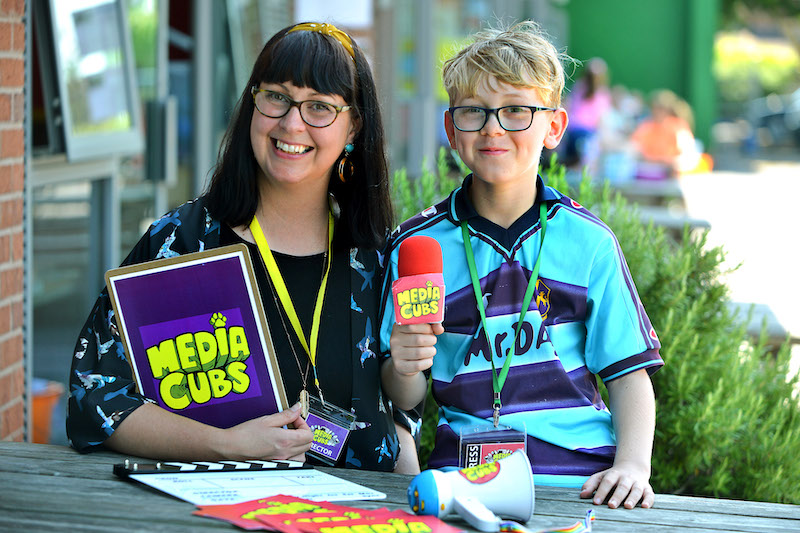
Left to right: Aisya Nazrim, Jack Day Sam Mounfield as TV news reporters. Credit: Media Cubs
UK journalism has a massive diversity problem. Not only were there no non-white top editors in a recent sample of 100 major online and offline news outlets, despite the country being home to millions of people of colour, we also have a class problem. While only around seven per cent of pupils go to private school, 51 per cent of the UK’s ‘top 100’ journalists are privately educated.
The diversity problem is even more visible when it comes to location - much of the media industry is concentrated in and around London, while regional and local media outlets are slowly disappearing. The Covid-19 crisis is making the situation even worse, with dozens more hyperlocal publishers in danger of going bust.
The problem with having homogenous newsrooms is that stories that matter to audiences get missed. And the more white, posh and London-centric the industry gets, the harder it is for anyone else to get in and feel like their voice matters.
"You cannot be what you cannot see," says Kirsty Day, the Manchester-based founder of Media Cubs, a project that encourages children aged seven to 11 to become journalists.
She and her business partner Grace Dyke set up pop-up newsrooms in schools, mostly in the Greater Manchester area, to give underprivileged pupils an opportunity to try out a host of newsroom and journalism roles, including presenter, camera operator and even comic strip maker.

Day, who grew up on a council estate in Manchester, became interested in journalism at a very young age. She loved writing and wanted to give people a voice, just like her father had. He was a local journalist who had started as an apprentice on a local paper and worked his way up. He never went to university.
With the loss of hundreds of local news titles in the past two decades, this low-cost opportunity is almost non-existent today. On top of having to pay university tuition fees, young people who seek work experience in the media often have to travel to London, incurring further expense.
Day says that empowering the next generation of reporters is crucial in order to give them the confidence to know their voice and community matter.

She set up Media Cubs in 2018 on account of her son Jack, who seems to have inherited the family flair for journalism. His school could not sufficiently support his creativity given that there was little time and space for anything outside the national curriculum.
Day and Dyke run workshops, after-school clubs and parties where children become reporters. 'Cubs' even try their hand at podcasting and asking questions at live press conferences.
For some children, like Aisya, self-publishing is a great way to practise new skills and make their voice heard.
"Kids are way ahead of us when it comes to social media," says Day. Unsurprisingly, TikTok videos are a popular choice when it comes to reporting, partly due to role models such as Emma Bentley.
Media Cubs collaborates with some of the UK’s biggest publications and broadcasters, including the Daily Mirror, The Guardian and ITV, and is seeking more partnerships that will help children picture themselves in a newsroom role.
"I would like to see regions more built up," says Day, who hopes that bridging the confidence gap can help the UK’s next generation of regional reporters thrive.
Free daily newsletter
If you like our news and feature articles, you can sign up to receive our free daily (Mon-Fri) email newsletter (mobile friendly).
Related articles
- 15 year old local publisher launching in print
- Protecting independent journalism, with Lexie Kirkconnell-Kawana of IMPRESS
- 200 speakers you need at your next journalism event to avoid all-male panels
- Five key takeaways from the UK select committee on the future of news
- New project InOldNews wants to improve representation in video journalism









